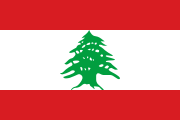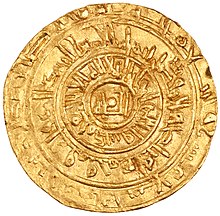Portal:Lebanon
The Lebanon PortalA view of Byblos, Lebanon
 Lebanon, officially the Republic of Lebanon, is a country in the Levant region of West Asia, bordered by Syria to the north and east, Israel to the south, and the Mediterranean Sea to the west; Cyprus lies a short distance from the country's coastline. It is at the crossroads of the Mediterranean Basin and the Arabian Peninsula. Lebanon has a population of more than five million and an area of 10,452 square kilometres (4,036 sq mi). Beirut is the country's capital and largest city. Human habitation in Lebanon dates to 5000 BC. From 3200 to 539 BC, it was part of Phoenicia, a maritime empire that stretched the Mediterranean Basin. In 64 BC, the region became part of the Roman Empire, and later the Byzantine Empire. After the 7th century, it came under the rule of different caliphates, including the Rashidun, Umayyad and Abbasid Caliphate. The 11th century saw the establishment of Crusader states, which fell to the Ayyubids and the Mamluks, and eventually the Ottomans. Under Ottoman ruler Abdulmejid I, the first Lebanese proto-state, the Mount Lebanon Mutasarrifate, was established in the 19th century as a home for Maronite Christians, in the Tanzimat period. Lebanon is a developing country, ranked 112th on the Human Development Index. It has been classified as an upper-middle-income state. The Lebanese liquidity crisis, coupled with nationwide corruption and disasters such as the 2020 Beirut explosion, precipitated the collapse of Lebanon's currency and fomented political instability, widespread resource shortages, and high unemployment and poverty. The World Bank has defined Lebanon's economic crisis as one of the world's worst since the 19th century. Despite the country's small size, Lebanese culture is renowned both in the Arab world and globally, powered primarily by the Lebanese diaspora. Lebanon is a founding member of the United Nations and of the Arab League, and is a member of the Non-Aligned Movement, the Organization of Islamic Cooperation, the Organisation internationale de la Francophonie, and the Group of 77. (Full article...) This is a Featured article, one of the best articles Wikipedia has to offer.
Abu Ali Salih ibn Mirdas (Arabic: ابو علي صالح بن مرداس, romanized: Abū ʿAlī Ṣāliḥ ibn Mirdās), also known by his laqab (honorific epithet) Asad al-Dawla ('Lion of the State'), was the founder of the Mirdasid dynasty and emir of Aleppo from 1025 until his death in May 1029. At its peak, his emirate (principality) encompassed much of the western Jazira (Upper Mesopotamia), northern Syria and several central Syrian towns. With occasional interruption, Salih's descendants ruled Aleppo for the next five decades. Salih launched his career in 1008, when he seized the Euphrates river fortress of al-Rahba. In 1012, he was imprisoned and tortured by the emir of Aleppo, Mansur ibn Lu'lu'. Two years later he escaped, capturing Mansur in battle and releasing him for numerous concessions, including half of Aleppo's revenues. This cemented Salih as the paramount emir of his tribe, the Banu Kilab, many of whose chieftains had died in Mansur's dungeons. With his Bedouin warriors, Salih captured a string of fortresses along the Euphrates, including Manbij and Raqqa, by 1022. He later formed an alliance with the Banu Kalb and Banu Tayy tribes and supported their struggle against the Fatimids of Egypt. During this tribal rebellion, Salih annexed the central Syrian towns of Homs, Baalbek and Sidon, before conquering Fatimid-held Aleppo in 1025, bringing "to success the plan which guided his [Banu Kilab] forebears for a century", according to historian Thierry Bianquis. Salih established a well-organized administration over his Aleppo-based domains. Militarily, he relied on the Banu Kilab, while entrusting fiscal administration to his local Christian vizier, policing to the aḥdāth (urban militia) under Salim ibn Mustafad, and judicial matters to a Shia Muslim qāḍī (head judge). His rule was officially tolerated by the Fatimids, to whom he paid formal allegiance. His alliance with the Banu Tayy ultimately drew him into conflict with the Fatimid general, Anushtakin al-Dizbari, whose forces killed Salih in battle near Lake Tiberias. Salih was succeeded by his sons Nasr and Thimal. (Full article...) Did you know (auto-generated) -
TopicsRelated portalsReligions in Lebanon Arab states Other countries This is a Good article, an article that meets a core set of editorial standards.
 Chekri Ganem (also spelled Chekri Ghanem or Shukri Ghanim; Arabic: شكري ابن إبراهيم غانم / ALA-LC: Shukrī ibn Ibrāhīm Ghānim; 1861 – 3 May 1929) was a Lebanese intellectual, writer, playwright, poet, and journalist. He traveled extensively, and finally settled in France in 1895. In Paris, he became a dynamic political activist and leader in the Syro-Lebanese diaspora. He founded the Société des Amis de l'Orient (Society of Friends of the Orient) in 1908 and the Lebanese Committee of Paris in 1912. He also played a significant role in the Arab Congress of 1913, where he was elected vice president. Ganem was a proponent of Lebanon's independence from the Ottoman Empire. He is considered the founding father of Francophone Lebanese literature, and his literary work was overtly political, becoming most manifest in his poetry collection Ronces et Fleurs (Brambles and Flowers). His masterpiece, Antar, was a widely-acclaimed theatrical fantasy, and an open manifesto of Arab nationalism. Ganem was named Commander of the Legion of Honor shortly before his death in 1929. (Full article...) General imagesThe following are images from various Lebanon-related articles on Wikipedia.
CategoriesAssociated WikimediaThe following Wikimedia Foundation sister projects provide more on this subject:
SourcesDiscover Wikipedia using portals |
























































